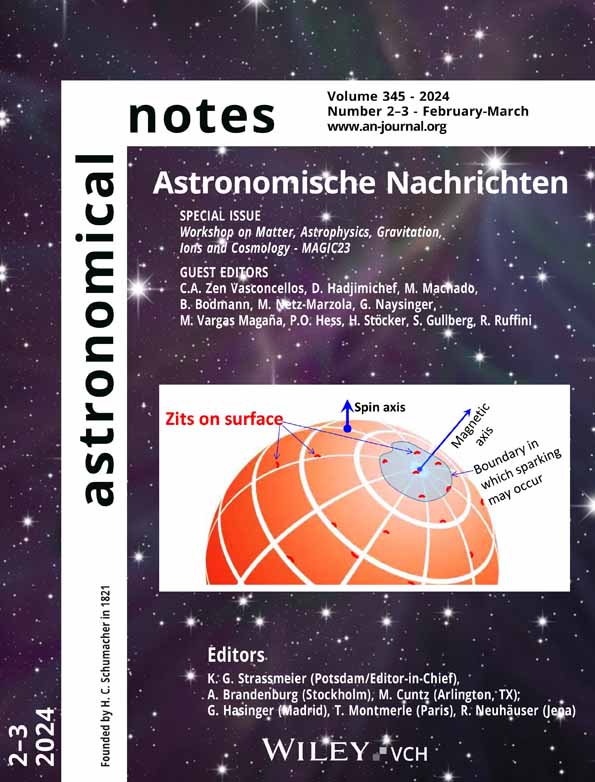Effects of a generalized uncertainty principle on the MIT bag model equation of state
Abstract
The Generalized Uncertainty Principle (GUP) is motivated by the premise that spacetime fluctuations near the Planck scale impose a lower bound on the achievable resolution of distances, leading to a minimum length. Inspired by a semiclassical method that integrates the GUP into the partition function by deforming its phase space, we induce a modification on the thermodynamic quantities of the MIT bag model that we propose serves as an effective semiclassical description of deconfined quark matter in a space with minimal length. We investigate the consequences of this deformation on the zero-temperature limit, revealing a saturation limit for the energy density, pressure, and baryon number density and an overall decrease of the thermodynamic quantities which suggests an enhanced stability against gravitational collapse. These findings extend existing research on GUP-deformed Fermi gases. Ultimately, our description introduces the effects of quantum gravity in the equations of state for compact stars in a mathematically simple manner, suggesting the potential for extension to more complex systems.
CONFLICT OF INTEREST STATEMENT
The authors declare no potential conflict of interest.




